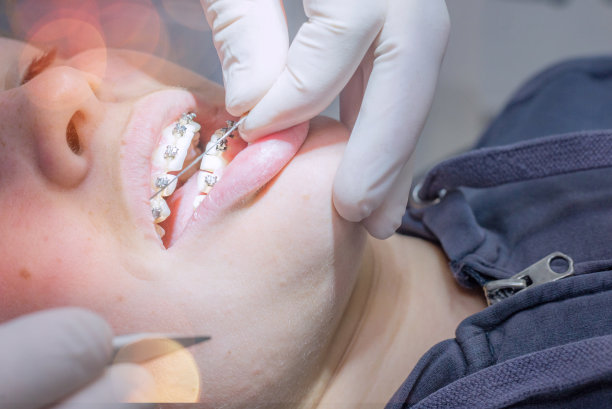Understanding the Importance and Process of Extracting a Tooth for Better Dental Health and Future Care
Summary: The extraction of a tooth is often considered a last resort in dental health, yet it plays a significant role in ensuring the overall well-being of an individual’s mouth. This article provides a comprehensive exploration of the importance of tooth extraction, detailing its relevance in managing dental issues effectively, understanding the clinical process involved, recognizing aftercare needs, and considering the long-term benefits for future oral health. Each section elaborates on a specific aspect of tooth extraction, providing insights into when it is necessary, the steps taken during the procedure, proper aftercare, and how it contributes to better dental health practices moving forward. Through this understanding, patients can approach tooth extractions with the necessary knowledge and assurance required for optimal dental care.
1. Recognizing When Tooth Extraction is Necessary

Tooth extraction becomes necessary primarily due to severe decay that cannot be treated with other methods such as fillings or root canals. When a tooth is extensively damaged, it can lead to not only pain but also infection that can jeopardize surrounding teeth and overall oral health. Timely extraction can prevent these complications, making it crucial for individuals to recognize the signs that indicate further dental intervention is required.
Another common situation necessitating tooth removal is overcrowding. This is especially prevalent in adolescents and young adults whose jaws may not have enough space for all their teeth. To prepare for orthodontic work, keeping the other teeth aligned properly, an extraction may be needed. This is also a preventative measure to avoid future dental problems that could arise from insufficient space within the mouth.
Lastly, impacted teeth, most frequently the wisdom teeth, often require extraction. When these teeth do not emerge properly, they can create pressure on adjacent teeth, lead to infections, or result in painful swelling. Understanding the indicators of impacted teeth is vital for individuals to seek timely dental care to prevent long-term issues.
2. The Clinical Process of Tooth Extraction
The procedure for extracting a tooth typically begins with a thorough examination by a dental professional. This examination often includes X-rays to assess the positioning of the tooth and any related structures. The dentist will discuss the best approach for the extraction, which is essential for ensuring that the procedure is both effective and comfortable for the patient.
Following the assessment, local anesthesia is administered to numb the area around the tooth that is to be extracted. In certain cases, sedation may be offered to help alleviate any anxiety the patient might experience. Once the area is numb, the dentist will use specific tools to carefully loosen and remove the tooth, ensuring minimal discomfort and quick recovery.
After the extraction, the dentist provides specific instructions to the patient to aid healing. These guidelines include managing pain, swelling, and bleeding, and they are vital for ensuring a smooth recovery. Understanding the extraction process equips patients with realistic expectations and peace of mind.
3. Aftercare Considerations Following Tooth Extraction
Proper aftercare is crucial for recovery following a tooth extraction. Initially, patients may experience swelling and discomfort, which can be alleviated through ice packs and prescribed pain medications. It is essential to follow the dentists recommendations closely to manage these symptoms effectively.
Additionally, maintaining dietary restrictions for the first few days after the procedure is important. Soft foods should be introduced gradually, avoiding hard, hot, or spicy foods that can disrupt the healing process or irritate the extraction site. Staying hydrated with cool liquids can also facilitate recovery.
Its also critical to monitor for any signs of infection, such as increased pain, fever, or unusual swelling. If these occur, patients should promptly contact their dentist. Regular follow-up appointments may be necessary to ensure the site is healing properly, further emphasizing the role of aftercare in successful recovery.
4. Long-term Benefits of Tooth Extraction for Oral Health
While it may seem counterintuitive, tooth extraction can lead to significant long-term benefits for dental health. By removing problematic teeth, individuals can mitigate ongoing pain and prevent the spread of infections that could damage surrounding teeth and gums.
Moreover, extractions can pave the way for orthodontic improvements. By addressing overcrowded teeth, patients can achieve better alignment which not only enhances appearance but also aids in more effective oral hygiene practices. This, in turn, can lead to improved longevity for the remaining natural teeth.
On a more overarching scale, extractions can contribute to overall systemic health. Poor oral health has been linked to various conditions such as heart disease and diabetes. By ensuring optimal dental conditions through necessary extractions, individuals can improve their overall health outcomes, providing an essential perspective on the importance of maintaining dental care.
Summary:
Understanding the process and importance of tooth extraction is vital for individuals seeking to maintain their dental health long-term. From recognizing the need for extraction to appreciating its multiple benefits, patients are empowered to make informed decisions regarding their treatment. Through proper aftercare and the procedures involved, one can significantly enhance their future oral health and overall well-being.
This article is compiled by Vickong Dental and the content is for reference only.



